 | Andrey Baykov is Vice President for Graduate and International Programs and Associate Professor of International Affairs at MGIMO University. He is also editor-in-chief of International Trends, a member of the International Studies Association, a member of the Executive Board of the Russian Political Science Association, and Director of the Academic Educational Forum on International Relations. In 2017, he was elected to the Youth Council on Education and Science Policy of the President of the Russian Federation, which brings together some 30 bright scholars in Russia across all disciplines in the age range of up to 35 years old. Baykov earned his master’s degree in International Relations in 2007 and his Ph.D. in Political Science in 2009 at MGIMO University. For his research of comparative regional integration in East Asia and Europe, he was awarded the First Prize of the Russian Academy of Sciences in 2013. He was the recipient of the Donald Robertson Award of the U.S. International Studies Association in 2013 for his paper on Eurasian integration. |
 | Daniel Drezner is Professor of International Politics and Co-Director of the Russia and Eurasia Program at The Fletcher School. He is a nonresident senior fellow at the Brookings and a contributing editor at The Washington Post. Previously he taught at the University of Chicago and at the University of Colorado at Boulder. He has held positions with Civic Education Project, the RAND Corporation, and the U.S. Department of the Treasury, and received fellowships from the German Marshall Fund of the United States, Council on Foreign Relations, and Harvard University. Drezner has written six books, including The Ideas Industry (2017) and The System Worked (2014). He has published articles in numerous scholarly journals as well as in The New York Times, Wall Street Journal, Politico, and Foreign Affairs, and has been a contributing editor for Foreign Policy and The National Interest. He received his B.A. in Political Economy from Williams College and his M.A. in Economics and Ph.D. in Political Science from Stanford University. |
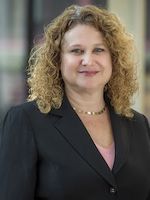 | Carolyn Gideon is Assistant Professor of International Communication and Technology Policy. She is also director of the Hitachi Center for Technology and International Affairs. Gideon’s research focus is policy, access, and industry structure issues of information and communication technology. She has been a fellow at the Belfer Center for Science and International Affairs and at the Center for Business and Government at Harvard Kennedy School, and a research affiliate with the MIT Program on Internet and Telecoms Convergence. Past experience includes assistant vice president of Parker/Hunter Incorporated, manager of Manville Personal Injury Settlement Trust, and consultant with Strategic Planning Associates (now Mercer Management Consulting). She is a member of the International Telecommunication Society, International Communications Association, Society for Benefit Cost Analysis, and president-elect of the Transportation and Public Utility Group of the American Economic Association. |
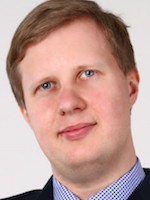 | Igor Istomin is Associate Professor at the Department of Applied Analysis of International Issues at MGIMO University. He holds Ph.D. and M.A. degrees from MGIMO University as well as an undergraduate degree from Saint Petersburg State University. Istomin teaches undergraduate and graduate classes in methods of applied analysis of international affairs. He is an executive editor at International Trends, a leading Russian academic journal. He is also a visiting fellow at the School of International and Public Affairs at Jilin University in China. Istomin is the author of more than 50 publications on U.S. foreign policy, relations in the Euro-Atlantic space, and international security. His most recent book is The Logic of State Behavior in International Politics (2017). He has also prepared policy reports and papers for the Russian International Affairs Council, the Valdai Discussion Club, the Center for Strategic Research in Moscow, and the European Leadership Network. |
 | Ian Johnstone currently serves as the Dean ad interim at The Fletcher School of Law and Diplomacy at Tufts University, as well as a Professor of International Law. From 2013-2015, he was also Academic Dean. Prior to joining Fletcher in 2000, he served in the United Nations’ Executive Office of the Secretary-General. His most recent books include The Oxford Handbook on International Organizations (2016); Law and Practice of the United Nations, 2nd edition (2016); The Power of Deliberation: International Law, Politics and Organizations (2011). From 2005-2007, he was the lead author and founding editor of the Annual Review of Global Peace Operations. He is currently on the editorial boards of Global Governance Journal and International Organizations Law Review. Johnstone, recipient of the James L. Paddock Teaching Award in 2005, teaches courses in international organizations and peace operations. He continues to serve as a regular consultant to the United Nations, and is a Non-Resident Senior Fellow at the Center on International Cooperation, New York University. A citizen of Canada, he holds an LL.M degree from Columbia University and JD and B.A. degrees from the University of Toronto. |
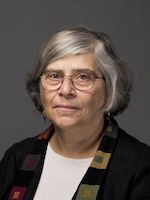 | Susan Landau is Bridge Professor in Cyber Security and Policy, and splits her time between The Fletcher School and Tufts University's School of Engineering (as a professor of Computer Science). Landau works at the intersection of cybersecurity, national security, law, and policy. She has testified before Congress, written for the Washington Post, Science, and Scientific American, and frequently appears on NPR and BBC. Her previous positions include senior staff privacy analyst at Google, distinguished engineer at Sun Microsystems, and faculty member at Worcester Polytechnic Institute, the University of Massachusetts Amherst, and Wesleyan University. |
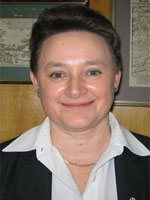 | Marina Lebedeva is Professor and the Head of the World Politics Department at MGIMO University. She graduated from Moscow State University and defended her thesis in psychology on the problems of international negotiations. In 1993, Lebedeva received her second degree (Doctor of Science) in international relations from MGIMO University. She is the author and editor of more than 350 academic works, including more than 30 books. Her works were published in the United States, Great Britain, France, Germany, the Netherlands, Romania, South Africa, Latvia, Czech Republic, Sweden, and China. Lebedeva has been a panel organizer at many international conferences, including ISA, RISA, ECPR, WISC, and others. |
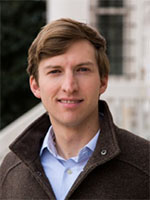 | Chris Miller is Assistant Professor of International History and Co-Director of the Russia and Eurasia Program at The Fletcher School. He has previously served as Associate Director of the Brady-Johnson Program in Grand Strategy at Yale, a lecturer at the New Economic School in Moscow, a visiting researcher at the Carnegie Moscow Center, a research associate at the Brookings Institution, and as a fellow at the German Marshall Fund's Transatlantic Academy. He has written two books, The Struggle to Save the Soviet Economy: Mikhail Gorbachev and the Collapse of the USSR, and Putinomics: Power and Money in Resurgent Russia. He received his Ph.D. and M.A. from Yale University and his B.A. in history from Harvard University. |
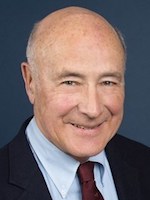 | Joseph Nye is Distinguished Service Professor, Emeritus at Harvard University and a former Dean of Harvard’s John F. Kennedy School of Government. He received a bachelor's degree summa cum laude from Princeton University, won a Rhodes Scholarship to Oxford University, and earned a Ph.D. in Political Science from Harvard. He has served as Assistant Secretary of Defense for International Security Affairs, Chair of the National Intelligence Council, and Deputy Under Secretary of State for Security Assistance, Science and Technology. His most recent books include The Powers to Lead (2010), The Future of Power (2012), Presidential Leadership and the Creation of the American Era (2014), and Is the American Century Over? (2015). He is a fellow of the American Academy of Arts and Sciences, the British Academy, and the American Academy of Diplomacy. |
 | Mihaela Papa is Adjunct Assistant Professor in Sustainable Development and Global Governance at The Fletcher School and an overseas member at the Center for BRICS Studies at Fudan University in Shanghai. She is also Co-Investigator at Rising Power Alliances project. She specializes in analyzing policy conflict and strategizing in complex negotiations, especially on environmental regulation and the rise of new powers. As a postdoctoral fellow at Harvard Law School, she examined India, China and Brazil in global legal governance, spent six months in China as a visiting researcher, and embarked on a BRICS-focused research agenda. |
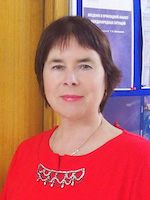 | Tatyana Shakleina is Chair of the Department of Applied Analysis of International Issues at MGIMO University. She also serves as a Leading Research Associate at the Institute of the U.S. and Canada Studies at the Russian Academy of Sciences, where she earned her Ph.D. in World History and International Relations in 1984 and became a Professor of Political Science in 2003. She is the author or editor of over 200 publications on contemporary international relations, U.S. and Russian foreign policy, Russia-U.S. relations, American think tanks, Russian studies in the United States, and U.S. studies in Russia, including Russia and the United States in World Politics (2012), Foreign Policy of the Bush Administration: Concepts and Practice (2003), and Russia and the United States in the New World Order (2002). |
 | Richard Shultz is Lee E. Dirks Professor of International Politics and Director of the International Security Studies Program at The Fletcher School. He has held three chairs: Olin Distinguished Professor of National Security, U.S. Military Academy; Secretary of the Navy Senior Research Fellow, Naval War College; and Brigadier General Oppenheimer Chair of War-fighting Strategy, U.S. Marine Corps. Since the mid-1980s, he has served as a security consultant to various U.S. government agencies concerned with national security. He published in the academic year 2013 a book on the U.S. Marine Corps’ 2004-2008 counterinsurgency campaign in Iraq titled The Marines Take Anbar: The Four-Year Fight to Defeat al Qaeda in Iraq. He has recently published with Dr. Querine Hanlon of the United States Institute of Peace a study focused on designing a new U.S. approach to Security Sector Reform. The study was published as a book in 2016 by the United States Institute of Peace under the title Prioritizing Security Sector Reform: A New U.S. Policy. |
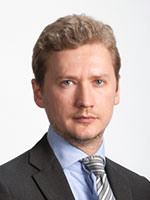 | Andrey Sushentsov is Director of the Institute of International Studies at MGIMO University and heads the MGIMO consulting branch Eurasian Strategies. He is also a Program Director of the Valdai Discussion Club. His research concentrates on U.S. foreign policy in international conflicts in South Caucasus, Ukraine, and the Middle East. In his studies, he examines the spheres of conflicting interests of Russia and the United States in Europe, the Middle East and the post-Soviet space. His key publications include monographs “America's Small Wars”, “Essays on U.S. Policy in the Regional Conflicts of the 2000s”, and the collective monograph “Russia and the World in 2020”. He is also an editor of the annual forecast “International Threats”. Sushentsov was a Visiting Professor and Research Fellow at Georgetown University, Johns Hopkins University, Guido Carli Free University of International Studies, Carnegie Endowment for International Peace, Harvard University, and Middlebury Institute for International Studies in Monterey. He is a member of the Council on Foreign and Defense Policy and a member of the Working Group on the Future of Russian-American Relations. |
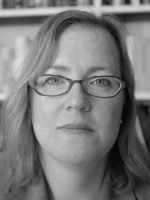 | Monica Toft is Professor of International Politics and Director of the Center for Strategic Studies at The Fletcher School. She is also a research associate at the Blavatnik School of Government at the University of Oxford and at the Harvard Kennedy School’s Belfer Center for Science and International Affairs. While at Harvard, she directed the Initiative on Religion in International Affairs and served as Assistant Director of the John M. Olin Institute for Strategic Studies. Toft’s areas of research include international security, ethnic and religious violence, civil wars, and demography. Her most recent books include Securing the Peace (2011), Political Demography (2012), and God’s Century (2012). Toft holds an M.A. and Ph.D. in Political Science from the University of Chicago. |
 | Joel Trachtman is Professor of International Law at The Fletcher School. Recent books include The Future of International Law: Global Government (2013), The Tools of Argument (2013), The International Law of Economic Migration: Toward the Fourth Freedom (2009); Ruling the World: Constitutionalism, International Law, and Global Governance (2009); Developing Countries in the WTO Legal System (2009); and The Economic Structure of International Law (2008). Trachtman has served as a member of the Boards of the American Journal of International Law, the European Journal of International Law, the Journal of International Economic Law, the Cambridge Review of International Affairs, and the Singapore Yearbook of International Law. He has consulted for a number of governments and international organizations, including the United Nations, the World Bank, and the OECD. From 1998-2001, he was Academic Dean of The Fletcher School, and from 2000-2001, he served as Dean ad interim. He has been a visiting professor at Basel, Hamburg, Harvard, and Hong Kong. He graduated from Harvard Law School, where he served as editor in chief of the Harvard International Law Journal, and practiced in New York and Hong Kong for 9 years before entering academia. |
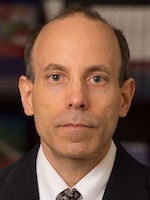 | Richard Weitz is Senior Fellow and Director of the Center for Political-Military Analysis at Hudson Institute. His current research includes regional security developments relating to Europe, Eurasia, and East Asia as well as U.S. foreign and defense policies. Previously Weitz worked for shorter terms at the Institute for Foreign Policy Analysis, Center for Strategic and International Studies, Defense Science Board, Harvard University, and other research institutions, and the U.S. Department of Defense. Dr. Weitz is a graduate of Harvard University (Ph.D. in Political Science), Oxford University (M.Phil. in Politics), the London School of Economics (M.Sc. in International Relations), and Harvard College (B.A. with Highest Honors in Government), where he was elected to Phi Beta Kappa. He is proficient in Russian, French, and German. |